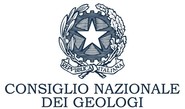Coastal Resilience and Adaptation to Climate Change: a policy, technical-scientific and financial challenge for coastal safety and Blue Economy sustainable development

- Tuesday, November 5, 2024
- 10:00 - 15:30
- Memo
- Agorà Blue Economy B8 Pav.
- Italian
- English
- organized by Ecomondo STC & Italian Ministry of Environment and Energy Security, ISPRA (Italian Institute for Environmental Protection and Research), GNRAC, CPMR
Is the current EU and National climate action enable to address the challenges of adapting to the ongoing climate change? From the reduction of vulnerability to the strengthening of readiness of public policies in coastal territories? It is a question that institutions at different levels and the scientific community are called to answer for coastal territories and population safety and for the sustainable development of coastal-based Blue Economy sectors in a changing climate scenario.
Although the capacity to analyze and understand the impacts of climate change, the forecasting of future scenarios and, from a technical point of view, the ability to design and implement specific solutions, have progressed significantly in recent decades, much effort still needs to be made to improve access to available EU/national funds and to address the lack of specific programs and/or financial mechanisms to enable regional and local authorities in accelerating the delivery of important innovative adaptation solutions.
According to a recent study (www.nature.com/articles/s41598-023-48136-y) by the European Institute for Economics and Environment - EIEE, the sea level rise due to climate change could cost Europe up to €872 billion by 2100, due to the potential economic impacts on 271 maritime regions, with particular emphasis in the Mediterranean where more than 40,000 km of coastline are at risk.
Maritime Regions are at the forefront regarding these impacts. Although they already have very ambitious and consolidated adaptation strategies, re-designing coastal areas and make them more resilient to climate change effects (sea level rise, floods, storm surges, marine ingression, coastal erosion, wildfires, droughts, etc.,) needs relevant investments and a considerable administrative effort. In addition, in order to implement large-scale intervention programs, the Regions have to face legislative barriers, high fragmentation of funding sources, diversification and complexity of procedures and eligibility criteria, which often discourage or cause significant delays in implementation.
In this regard, special attention must be paid to the new generation of National Adaptation Plans (NAPs), which should ensure an effective multilevel and multi actors governance and provide higher funding and administrative support for Regional and Local authorities (e.g. see recommendations delivered by the European Commission under its last assessment of the NAPs). An ambitious political response on funds should be provided as soon as possible, both at European and National level, to allow Regional and Local Authorities to successfully implement their adaptation strategies and plans.
The event in Ecomondo aims to take stock of the state of scientific knowledge regarding the effects of ongoing climate change on our coasts and the future scenarios to be addressed, as well as the adaptation policies and good practices put in place across Europe. It wants to continue its strategic mission of “key forum” to brainstorm on innovative solutions and deliver recommendations for policy change to make easier the access to funds for the adaptation of coasts and territories to the effects of climate change, hopefully as early as for the post-2027 programming period.
Session Chairs
Enzo Pranzini, GNRAC (National Group for Research on Coastal Environment)
Lorenzo Cappietti, GNRAC (National Group for Research on Coastal Environment)
Giuseppe Sciacca, CPMR (Conference of Peripheral Maritime Regions of Europe)
Roberto Montanari, Emilia-Romagna Region
Programme
10.00 Introduction by the Chairs
10.15 Keynote speech: Increasing Coastal Resilience for coastal and ocean hazards. The Vision 2030 process.
Nadia Pinardi, UN Decade Collaborative Center on Coastal Resilience (DCC-CR)
SESSION 1 – State of Play & Challenges
10.30 European Climate Risk Assessment (EUCRA) overall outcomes on climate risks, adaptation actions and policies, and focus on European marine-coastal ecosystems
Hans-Martin Füssel, European Environment Agency (EEA) and EUCRA coordinator
10.45 State of play of implementation of the Italian National Plan for CC Adaptation
Fabiana Baffo, Ministry of Environment and Energy Safety (MASE)
11.00 European adaptation policies implementation and perspectives for the future challenge
Elina Bardram, Director for Adaptation and Resilience, Communication, and Civil Society Relations in DG CLIMA, European Commission and Mission Manager for the EU Mission on Adaptation to Climate Change
SESSION 2 – Finding solutions
11.15 Accessibility to funds for adaptation, financing for the EU ACC Strategy implementation
Roberto Rando, Principal Advisor - Climate Office, Operational Management & Policy Support Operations Directorate, European Investment Bank
11.30 Needs and perspectives of structural funds for climate change adaptation: use case in ERDF-RP 2021-2027 in Emilia-Romagna and first lessons learned
Claudia Romano, Responsible of Area Energy and Green Economy, Emilia-Romagna Region, Managing Authority ERDF-PR
11.45 The indicators of climate change impacts in coastal areas: data as guide for identifying actions
Marco Picone, National Centre for Coastal Zone Protection and Characterization, Marine Climatology and for Operational Oceanography - ISPRA (Institute for Environmental Protection and Research)
12.00 The EU’s Blue Economy Report with emphasis on climate change impacts along the European coastline
Michalis Vousdoukas, Joint Research Centre, Economics of Climate Change, Transport and Energy Unit - European Commission
12.15-14.15 Lunch break
SESSION 3 – Good Practices
14.15 Enablers and barriers to implementing Nature-based Solutions to build coastal resilience in Ireland
Eugene Farrell, University of Galway (Ireland)
14.30 State of implementation of the "Parco del Mare" intervention on Rimini waterfront, for mitigation of climate change impacts
Anna Montini, Councilor of Ecologic Transition, Environment, Sustainable Development, Blue Economy Rimini Municipality
14.45 Adaptation strategies taken by the Hauts-de-France region against coastal erosion and marine submersion
Bertrand Coppin, Policy Officer - Region of Hauts-de-France
15.00 Adaptation to climate change in low-lying and urbanized coasts, the case of Marina di Pisa
Lorenzo Cappietti, GNRAC - University of Florence
15.15 Conclusions by the Chairs
- Water Cycle and Blue Economy
- Onsite & live streaming event


